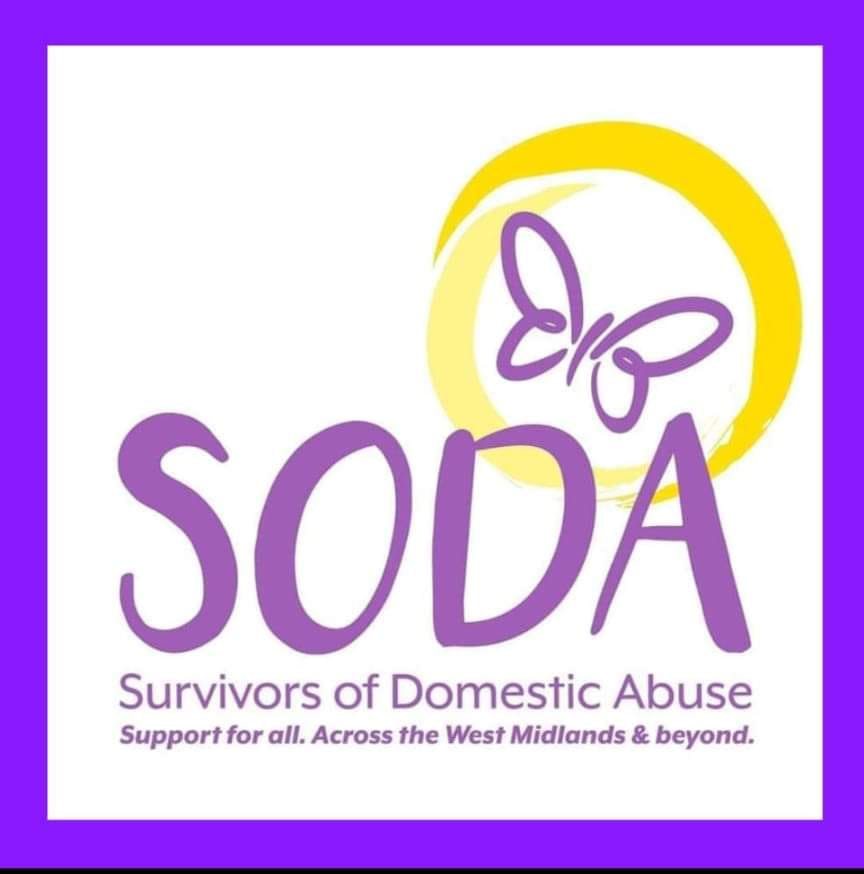Household isolation instructions as a result of coronavirus do not apply if you need to leave your home to escape domestic abuse. If you feel at risk of abuse, there is help and support available to you, including the police, online support, helplines and refuges. Anyone can be a victim of domestic abuse, regardless of gender, age, ethnicity, socio-economic status, sexuality or background. It knows no boundaries.
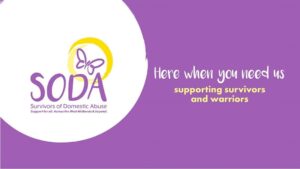
Domestic abuse is any incident or pattern of incidents of controlling, coercive or threatening behaviour, violence or abuse between those aged 16 or over who are or have been intimate partner or family members regardless of gender or sexuality. This can encompass but is not limited to the following types of abuse:
- Psychological
- Physical
- Sexual
- Financial
- Emotional
Controlling behaviour is a range of acts designed to make a person subordinate and/or dependent by isolating them from sources of support, exploiting their resources and capacities for personal gain, depriving them of the means needed for independence, resistance and escape and regulating their everyday behaviour.
Coercive behaviour is an act or a pattern of acts of assault, threats, humiliation and intimidation or other abuse that is used to harm, punish or frighten their victim.
It’s absolutely vital that when supporting victims of domestic abuse that the focus isn’t purely on physical violence; domestic abuse starts subtly and increases in severity and frequency. Domestic abuse isn’t as easy to identify, it doesn’t start with a punch in the face or a slap across the mouth; all too often it starts with subtle isolation at the honeymoon period of the relationship when everything is new and exciting. A gentle persuasion of, don’t go out with your friends tonight or don’t go and visit your parents today and before victims realise it, they are seeing their friends an family less and less as their perpetrator takes them away from their support network. Isolation is extremely powerful.
Many victims are taken away from their workplace and job too by their perpetrator, breaking them down piece by piece until they can no longer function and are unable to do their job. Getting sacked from their job, isolates them further, giving the perpetrator the opportunity to further abuse them and monitor their movements easier and continually.
As our Prime Minister, Boris Johnson, addressed the nation back in March 2020 it triggered me back to a place I never want to go back to again; then I thought about all the men and women who were now isolated and in lockdown with their perpetrator and then there were those who were in abusive relationships but who weren’t aware that they were even a victim.
This pandemic has brought the epidemic, domestic abuse, to the surface.
The first national lockdown saw a spike in domestic abuse cases in England and Wales, new figures have shown, with one in five offences recorded by police related to domestic violence.
More than a quarter of a million crimes were flagged as domestic abuse-related between March and June, the Office for National Statistics (ONS).
The 259,324 offences represent a rise of 7% from the same period in 2019 and an 18% rise from two years ago, but the ONS said it could not be determined if lockdown fuelled the number of offences as domestic abuse cases have been increasing year-on-year before the pandemic.
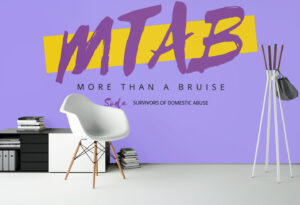
This lockdown is giving extra power and control to perpetrators and it’s our duty to ensure victims of domestic abuse that during the lockdown, specialist services are not on lockdown and isolation rules do not apply if they are leaving home because of domestic abuse.
There are a few things that victims can do to stay safe:-
> Try and keep their mobile phone on them at all times
> Try and keep their mobile phone fully charged
> Don’t back yourself into the kitchen or garage where there might be dangerous weapons
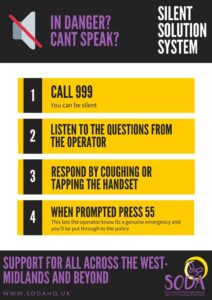
Bright Sky App
Bright Sky is a mobile app and website for anyone experiencing domestic abuse, or who is worried about someone else. The app can be downloaded for free via the app stores. Please only download the app if it is safe for you to do so and if you are sure that your phone isn’t being monitored. Launched in partnership with Vodafone, the app includes questionnaires to assess the safety of a relationship.
Hollie Guard App
Hollie Guard app is a next generation smartphone app that provides enhanced levels of protection. Hollie Guard has you covered, whether you’re working alone, travelling to an unknown area or simply commuting around town. With Hollie Guard, you can set extra levels of protection from right inside the App. Raising alerts with confidence
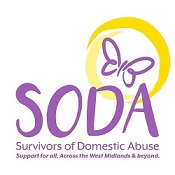
SODA (Survivors of Domestic Abuse)
I run an online support group for those who have experienced domestic abuse; the online group raises awareness, reduces isolation and supports others.
www.sodahq.uk
Ask ANI
Domestic abuse victims can now discreetly get help by ‘Asking for Ani’ at Boots pharmacies and other independent chemists.
Ani, which stands for ‘Action Needed Immediately’, is part of the Government’s efforts to help people trapped in unsafe situations while at home in lockdown.
Domestic abuse victims can now ‘Ask for Ani’ in every Boots store in the UK as part of a new codeword scheme. Men, women and children will be able to ask for the fictional staff member as a discreet plea for help without tipping off their abuser. A trained pharmacy worker will then offer a private space to find out if the victim needs to speak to police, support services or helplines, the Home Office said. The name Ani is in fact the acronym ANI – which stands for Action Needed Immediately.
It will be available initially in all 2,300 Boots stores across the UK, as well as 255 independent pharmacies.

The Mankind Initiative is the principal, expert and specialist charity in the UK focussing on male victims of domestic abuse. The charity collaborates and works in close partnership with other organisations and practitioners to support these victims too.

Women’s Aid is the national charity working to end domestic abuse against women and children.
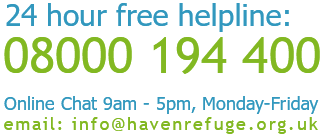
The Haven Wolverhampton supports women and dependent children who are vulnerable to domestic violence, homelessness and abuse.
My key message to anyone experiencing domestic abuse is, it’s not your fault; domestic abuse happens because abusers choose to abuse, no one chooses to be a victim. Please, if and when you can, phone that helpline, visit that website or chat online. There are specialist services out there to support you, they will listen to you and believe you.
#youarenotalone
